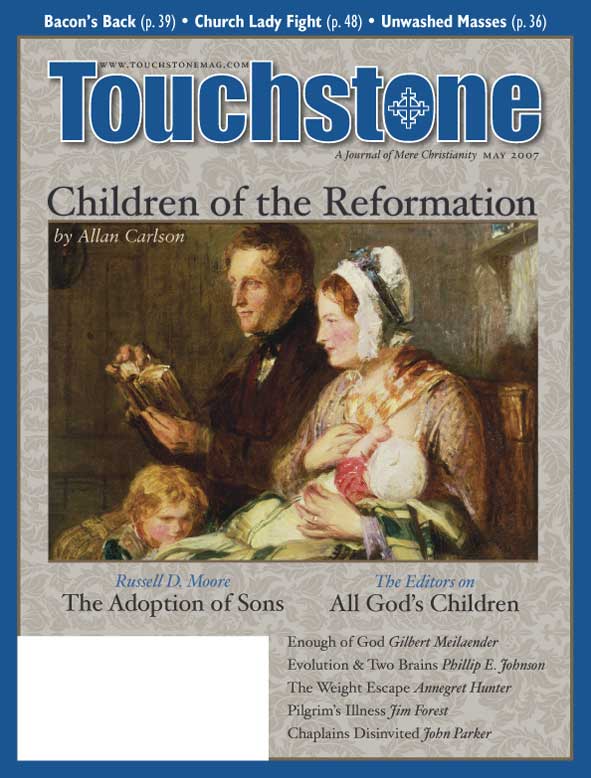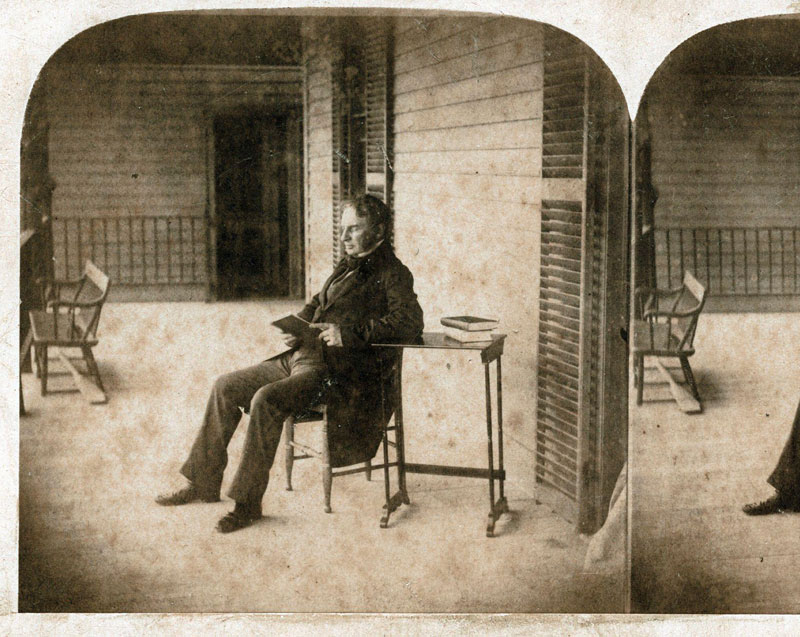Benediction Fiction
John Parker on the Dishonesty of Inclusive Prayers
Once I accepted an invitation to give the benediction at the graduation of the Medical University of South Carolina. I was delighted that a school like MUSC was still willing to invoke the Name of God and ask his blessings on those who are to be sent out into the world to practice the work that the school has trained them to do.
Having driven past the university’s beautiful St. Luke’s Chapel (named after St. Luke, the evangelist and physician) hundreds of times, I began to consider what words might be fitting for these medical students. I sat at my desk, reviewing ancient books of Christian prayers, to write the most appropriate one for those commencing the next step of their professional medical lives.
Parochial Names
Two days later, I received by mail a delightful letter, thanking me for agreeing to deliver the benediction and inviting me to a number of related festivities. Included with the letter, though, was a memorandum from the Office of the President of the Medical University: “Guidelines for Invocation and Benediction at Public Functions,” guidelines to which I would be required to conform in order to bless the graduates.
The first was a reasonable request for any public speaker: “Appeal to the larger spiritual virtues that all faiths have in common: love, faith, hope . . . peace, goodness.” The second was acceptable, although dripping with political correctness: “Use inclusive language: forbears rather than fathers, . . .” etc.
The third was a problem. Here is the text (the boldface appears in the original):
Steer clear of parochial, exclusively defining religious names, concepts, practices, and metaphors. A good rule of thumb to remember is that you come representing the entire faith community, not just your own group. The prayer should therefore not be offensive to anyone, whether Catholic, Baptist, Jewish, Muslim, etc. For example, when opening or closing, an inclusive choice would be “Holy God, Holy One, Creator, Sustainer,” rather than “Allah, Jesus, Holy Trinity,” etc.
In four sentences, the Medical University of South Carolina, in its effort to “set a tone of reverence at our public assemblies” and “bear testimony to [our] richly diverse religious and cultural heritage” and somehow to make generic and inoffensive any public benediction or invocation, sanctioned officially one religion over all others: American pop-religion—a tray full of cafeteria-style faith, which takes nice-sounding “religious” words from this group and that, pleasing to the ear but without real content.
I sent my prepared benediction to the Office of the President, wanting to embarrass neither myself nor the staff of the Medical University at graduation. I soon received a polite call from the same office, during which I was un-invited to bless the graduates.
The truly Christian benediction (the only type of benediction I am authorized by my archbishop and my ordination to give) is not permitted. Thus, the university, hoping to display its “religious heritage” and seeking to demonstrate its “pride in . . . diversity,” actually shows itself to be selectively inclusive. Inclusion in the Medical University’s public religious expression is limited to those who will show no conviction at all.
John Parker is priest-in-charge of Holy Ascension Orthodox Church, a mission parish of the Orthodox Church in America, in Mt. Pleasant, South Carolina. He earned his MDiv (2001) at Trinity Episcopal School for Ministry in Ambridge, Pennsylvania, and his MTh (2004) at St. Vladimir?s Orthodox Theological Seminary in Crestwood, New York. He can be reached at frjohn@ocacharleston.org.
subscription options
Order
Print/Online Subscription

Get six issues (one year) of Touchstone PLUS full online access including pdf downloads for only $39.95. That's only $3.34 per month!
Order
Online Only
Subscription

Get a one-year full-access subscription to the Touchstone online archives for only $19.95. That's only $1.66 per month!
bulk subscriptions
Order Touchstone subscriptions in bulk and save $10 per sub! Each subscription includes 6 issues of Touchstone plus full online access to touchstonemag.com—including archives, videos, and pdf downloads of recent issues for only $29.95 each! Great for churches or study groups.
Transactions will be processed on a secure server.
more from the online archives

33.1—January/February 2020
Do You Know Your Child’s Doctor?
The Politicization of Pediatrics in America by Alexander F. C. Webster
calling all readers
Please Donate
"There are magazines worth reading but few worth saving . . . Touchstone is just such a magazine."
—Alice von Hildebrand
"Here we do not concede one square millimeter of territory to falsehood, folly, contemporary sentimentality, or fashion. We speak the truth, and let God be our judge. . . . Touchstone is the one committedly Christian conservative journal."
—Anthony Esolen, Touchstone senior editor








